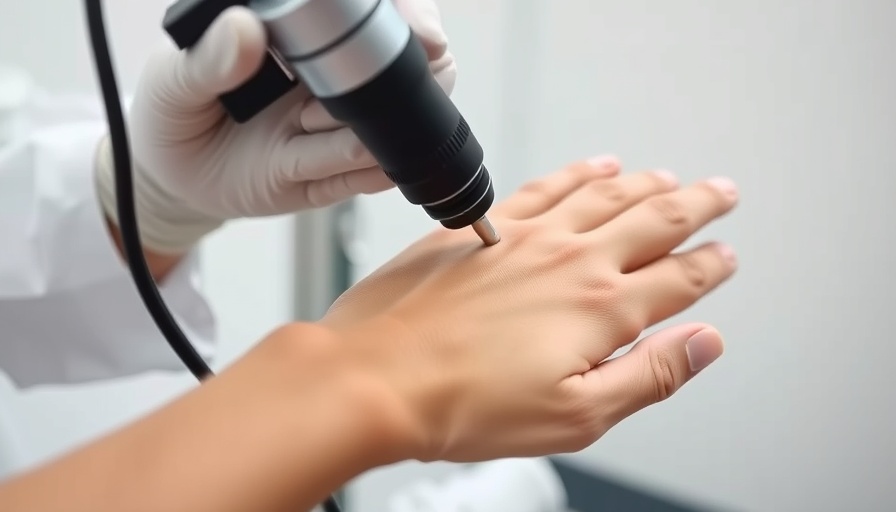
Insights on IL-17 Inhibitors: A New Dawn for Psoriasis Treatment
As scientists continue to unravel the complexities of psoriasis management, IL-17 inhibitors are emerging as a pivotal therapy option. These medications work by blocking the interleukin-17 pathway, which plays a significant role in the inflammatory process that leads to skin lesions. Recent findings have shown that not only do IL-17 inhibitors, like secukinumab and ixekizumab, significantly improve skin clearance for patients, but they also offer long-term safety and efficacy benefits. Experts are optimistic about the potential they hold for future treatment regimens and patient quality of life improvements.
The Emotional Toll of Chronic Hand Eczema
The emotional implications of chronic hand eczema (CHE) are profound and often underestimated. Recent findings from a German study highlight that patients with work-related CHE face significant emotional distress that may hinder their everyday functioning and professional engagements. Tailored psychological support services are being proposed as essential for these patients, enabling them to better manage their conditions and improve their overall well-being. Dermatologists are urged to integrate such support within treatment plans.
Roflumilast: A Safe Treatment for Infant Atopic Dermatitis?
In the realm of pediatric dermatology, roflumilast has emerged as a promising non-steroidal option for treating atopic dermatitis in infants. A recent discussion led by Dr. Mercedes E. Gonzalez emphasizes its capabilities in alleviating symptoms without exposing young patients to steroidal side effects. This breakthrough is crucial, as infant skin is particularly delicate, and safe alternatives are vital for families seeking effective treatments.
Enhancing Patient Care through Inclusive Language
Efforts to improve health outcomes in the LGBTQ+ community are gaining momentum, with studies indicating that using inclusive language in dermatology can greatly enhance patient care. A focus on better communication can help address the unique challenges faced by transgender individuals, particularly in the realm of acne treatment and other dermatological conditions. By improving dialogue between healthcare providers and patients, dermatologists can foster a more supportive environment and ultimately improve treatment adherence and outcomes.
Long-term Efficacy of Upadacitinib and Abrocitinib in Dermatitis
In the latest analysis of treatment options for moderate-to-severe atopic dermatitis, both upadacitinib and abrocitinib have shown substantial efficacy after one year of administration. These medications, which belong to the Janus kinase inhibitor class, demonstrate the potential for providing substantial relief to patients struggling with severe skin inflammation. The results from the real-world study reinforce the idea that these treatments can alter the standard of care for atopic dermatitis, possibly leading to broader acceptance and implementation in dermatology practices.
Key Takeaways from Recent Dermatology Insights
As we reflect on the essential findings of June 18, 2025, it's evident that the field of dermatology is rapidly evolving with innovation focused on both physical health and emotional well-being. From the implications of IL-17 inhibitors in treating psoriasis to the acknowledgment of patients’ emotional needs in cases of chronic hand eczema, we are witnessing a comprehensive transformation in patient-centered care. Furthermore, the recognition of inclusive language's importance could redefine the dermatological dialogue, paving the way for better health outcomes across diverse populations. Keeping abreast of these advancements is essential for patients and practitioners committed to achieving excellence in dermatological care.
Staying informed about these developments can have a direct impact on your skincare routine and choices. As new treatments and perspectives emerge, understanding their implications enables you to make informed decisions about your dermatological care. For continuous updates on innovations in dermatology, consider subscribing to specialized newsletters and staying engaged with reliable sources.
 Add Row
Add Row  Add
Add 




Write A Comment